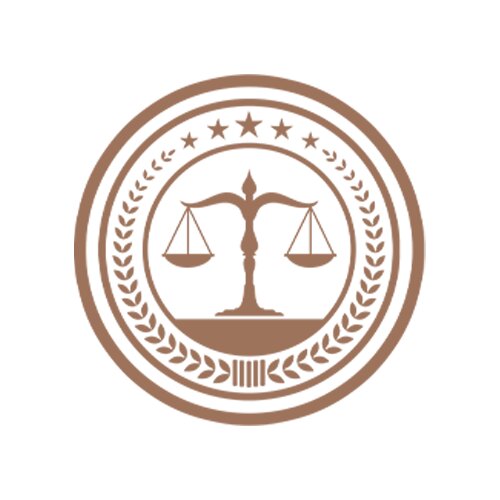Best Collaborative Law Lawyers in Kuwait
Share your needs with us, get contacted by law firms.
Free. Takes 2 min.
Free Guide to Hiring a Family Lawyer
Or refine your search by selecting a city:
List of the best lawyers in Kuwait
About Collaborative Law in Kuwait:
Collaborative law in Kuwait is a legal process used for resolving disputes in a non-adversarial manner. It involves both parties working together with their lawyers to reach a mutually acceptable agreement. This approach is often preferred over traditional litigation as it promotes cooperation and focuses on finding solutions rather than escalating conflict.
Why You May Need a Lawyer:
You may need a lawyer in collaborative law in Kuwait if you are facing a dispute with another party and wish to resolve it through negotiation and collaboration. A lawyer can provide legal advice, represent your interests, and help facilitate communication between you and the other party. They can also ensure that any agreements reached are legally binding and enforceable.
Local Laws Overview:
Key aspects of local laws relevant to collaborative law in Kuwait include the Kuwait Civil and Commercial Codes, which govern contract law and property rights. Additionally, the Kuwaiti legal system is based on Islamic law principles, which may influence the resolution of disputes through collaborative law. It is important to consult with a lawyer who is familiar with the local legal framework to ensure that your rights are protected.
Frequently Asked Questions:
1. What types of disputes can be resolved through collaborative law in Kuwait?
Collaborative law in Kuwait can be used to resolve a wide range of disputes, including family law matters, commercial disputes, and inheritance issues.
2. How is collaborative law different from mediation or arbitration?
Collaborative law involves both parties working together to reach an agreement, with the support of their lawyers. Mediation involves a neutral third party facilitating negotiations, while arbitration involves a third party making a binding decision on the dispute.
3. Is collaborative law binding in Kuwait?
Yes, any agreements reached through collaborative law in Kuwait are legally binding and can be enforced in court.
4. How long does the collaborative law process typically take in Kuwait?
The length of the collaborative law process in Kuwait can vary depending on the complexity of the dispute and the willingness of both parties to cooperate. It may take several sessions to reach a resolution.
5. Can I change lawyers during the collaborative law process in Kuwait?
Yes, you have the right to change lawyers at any time during the collaborative law process in Kuwait. However, it is important to consider the implications of switching lawyers and seek legal advice before making a decision.
6. What are the benefits of collaborative law in Kuwait?
The benefits of collaborative law in Kuwait include cost-effectiveness, confidentiality, and the ability to maintain control over the outcome of the dispute. It also promotes cooperation and preserves relationships between the parties involved.
7. Are there any restrictions on who can participate in collaborative law in Kuwait?
There are no restrictions on who can participate in collaborative law in Kuwait. Anyone with a dispute that they wish to resolve through negotiation and collaboration can benefit from this process.
8. Can collaborative law be used for international disputes in Kuwait?
Yes, collaborative law can be used to resolve international disputes in Kuwait, provided that both parties agree to participate in the process and comply with local laws and regulations.
9. What happens if the parties cannot reach an agreement through collaborative law in Kuwait?
If the parties cannot reach an agreement through collaborative law in Kuwait, they may choose to pursue other legal options, such as mediation, arbitration, or litigation in court.
10. How can I find a collaborative law lawyer in Kuwait?
You can find a collaborative law lawyer in Kuwait by contacting local law firms, bar associations, or legal directories. It is important to choose a lawyer who is experienced in collaborative law and has the necessary expertise to handle your case effectively.
Additional Resources:
For more information about collaborative law in Kuwait, you can visit the Kuwait Lawyers Association website or contact the Kuwait Ministry of Justice for guidance on legal procedures and regulations related to collaborative law.
Next Steps:
If you need legal assistance in collaborative law in Kuwait, the first step is to consult with a qualified lawyer who can assess your case and provide you with the necessary guidance and support. It is important to act promptly and seek legal advice as soon as possible to protect your rights and ensure a successful resolution of your dispute through collaborative law.
Lawzana helps you find the best lawyers and law firms in Kuwait through a curated and pre-screened list of qualified legal professionals. Our platform offers rankings and detailed profiles of attorneys and law firms, allowing you to compare based on practice areas, including Collaborative Law, experience, and client feedback.
Each profile includes a description of the firm's areas of practice, client reviews, team members and partners, year of establishment, spoken languages, office locations, contact information, social media presence, and any published articles or resources. Most firms on our platform speak English and are experienced in both local and international legal matters.
Get a quote from top-rated law firms in Kuwait — quickly, securely, and without unnecessary hassle.
Disclaimer:
The information provided on this page is for general informational purposes only and does not constitute legal advice. While we strive to ensure the accuracy and relevance of the content, legal information may change over time, and interpretations of the law can vary. You should always consult with a qualified legal professional for advice specific to your situation.
We disclaim all liability for actions taken or not taken based on the content of this page. If you believe any information is incorrect or outdated, please contact us, and we will review and update it where appropriate.
Browse collaborative law law firms by city in Kuwait
Refine your search by selecting a city.













